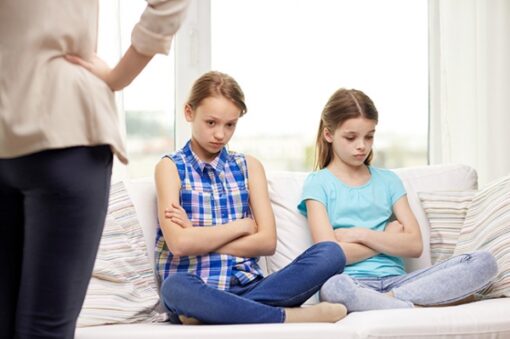Have a child or teenager misbehaving at home?
Unsure why they continue to play up on you, and feel helpless?
What else can you do to manage their misbehaviour?
Boundaries….is this an area of conflict in your house?
Many parents are in your situation with their kids, struggling with their behaviours, playing up, breaking rules & pushing you to breaking point. Setting and implementing boundaries and following through with discipline in the home is the key to managing your child’s misbehavior.
I want you to have a think about how you react when your child plays up or misbehaves on you.
What’s your go to response?

Emotional Regulation & The Impact On You
Learning about emotional regulation is important for parents/carers, and how you interact and model behaviours in the household. When we are emotional, we are providing more “attachment rich” attention to a child, e.g. increased eye contact, physical touch, and creating an emotional environment where funnily enough, they feel closest to you. If you react and don’t regulate your own emotional responses when teaching or disciplining your child, this can inadvertently reinforce undesirable behaviours in children.
This is the same on the flip side when they’re behaving well – if you neglect to make a big deal and provide attachment rich attention, this can reinforce those undesirable behaviours, as they don’t see you noticing or praising them when they’ve behaved well. So, it’s about switching it around and draining all the attention from the misbehavior and praising and celebrating the desirable behaviours you want to see more of.
What Type of Discipline Is Suitable for Misbehaviour
To remove giving your child “attachment rich” attention when they misbehave, the best form of discipline that will yield the greatest results for younger children is using time out. Reacting by yelling or smacking is more likely to increase problem behaviours, as they see this as getting attention from you (even if it’s negative attention).
For teenagers, removing privileges is a more effective consequence for misbehaviour.
Feeling Guilty
Research tells us that timeout immediately after a misbehavior is an effective consequence for children, that does not cause any harm or attachment issues. Some parents may feel guilty for not soothing their child, however time out is actually teaching your child to self-regulate their emotions. This is a very important skill that they need to develop.
Steps to Manage Misbehaviour in Your Home
- Praise and get really excited about their good behaviour.
- When you give instructions, don’t shout across the room. Get down to their level (if they’re younger/smaller) and provide short, clear instructions.
- If they fail to follow the instructions twice, calmly take them to time out until they have been quiet (stopped crying) for two minutes. For teens, remove a privilege and let them have some time to thing about this (quiet time in their room). This allows kids to regulate on their own.
- While the child is in timeout it is very important that you do not talk to them or try to soothe them.
- Schedule in special time to play with your child/interact one on one with your teen. This will ensure they have enough attention throughout the day, and will be less likely to seek attention with misbehaviour.
- Be consistent with the discipline! Even if you are not at home, find a space for time out, or immediately remove a privilege.
- Set up a rewards charts so that their good behaviour results in rewards, e.g. toys, treats, extra TV time or iPad time. Make sure you explicitly make the connection between their good behaviour and the reward – it needs to be clear why they received the award.
- Consistency is key! If you are consistent, you’ll find that the misbehaviours will reduce across contexts, e.g. improved behaviour in the classroom.
If you have tried many of these proven strategies, are still experiencing misbehaviour and are struggling to manage it, you may benefit from seeking support from a Psychologist.
Oppositional Defiant Disorder (ODD)
Oppositional Defiant Disorder is one of the most common child behavioural disorders. About 10.2% of all children will develop ODD, and it is more common in boys (11%) than girls (9%). Consistent misbehavior in the home is a sign of ODD, so if you’ve tried these above strategies and are still feeling lost and unsure of what you can do, why not speak with ODD expert Clinical Psychologist Rebecca El-Helou.
Written By Rebecca El-Helou – Clinical Psychologist – www.creatingchange.net.au
Creating Change Psychology – Hills Psychologists supporting families & individuals of the Hills District and greater Sydney area.

